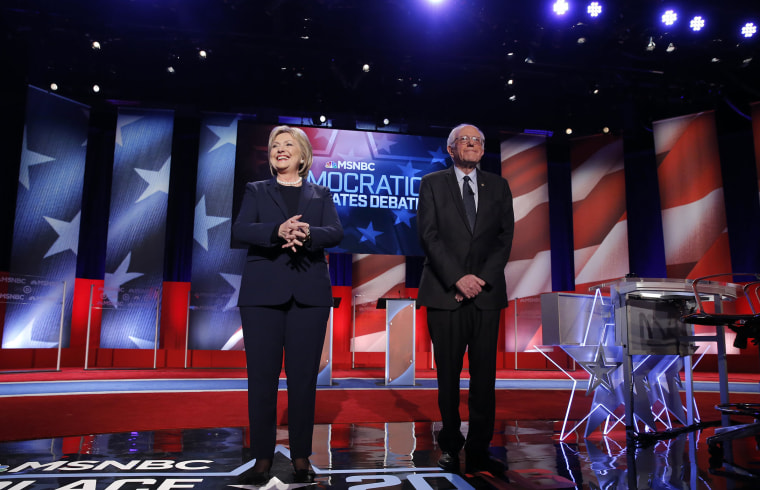In Democratic politics, no candidate ever wants to appear beholden to corporate donors, and that's especially true when it comes from the oil and gas industry. Few industries are as unpopular among progressive voters as Big Oil.
And with this in mind, Hillary Clinton generated headlines yesterday when she was
confronted by a Greenpeace supporter who pressed her on money she's received from the industry. The visibly annoyed Democratic presidential hopeful said she's tired of Bernie Sanders' campaign "lying" about her.
For its part, the Sanders campaign highlighted the encounter and insisted that Clinton "has relied heavily on funds from lobbyists working for the oil, gas and coal industry." This morning, the senator himself
repeated the charge, arguing, "The fact of the matter is Secretary Clinton has taken significant money from the fossil fuel industry."
The point of the criticisms is hardly subtle: Sanders and his supporters want Democrats to see Clinton as someone who may not follow through on her energy and environmental commitments because of the money she's received from Big Oil.
So, is that fair? Let's unwrap this a bit.
The
Washington Post published
a report today, relying on data from the Center for Responsive Politics, which drew an important distinction that sometimes gets lost in the shuffle: technically, both Clinton and Sanders have received money from "the oil and gas industry."
The total for Clinton's campaign is about $308,000; for Sanders's, it's about $54,000. As Clinton noted in the moment, the Center for Responsive Politics mostly aggregates contributions by employer. If a guy who runs the commissary at Chevron in California gives $27 to Bernie Sanders, that's counted as "oil and gas industry" money.
It would be ridiculous, of course, to suggest the Sanders has been corrupted because that guy, "feeling the Bern," chipped in $27. But because of the way contributions are categorized, money from an oil company CEO and a donation from a gas-station janitor are both counted the exact same way: it's technically money from the "oil and gas industry."
Looking at the dispute in an even broader context, the
Washington Post's
piece added, "About 0.15 percent of Clinton's campaign and outside PAC money is from the 'oil and gas industry.' Only about 0.04 percent of Sanders's is." In other words, neither of these candidates is dependent on financial support from those who work
in some capacity for an oil company.
So let's unpack the question from that Greenpeace activist. The suggestion appears to be that this 0.15 percent of all Clinton fundraising -- a percentage that, again, consists of contributions from employees of oil and gas companies regardless of job title -- somehow influences Clinton's behavior. The activist didn't connect the dots, but the implication is that this 0.15 percent makes Clinton more susceptible to the lures of the oil industry than does Sanders's 0.04 percent.
MSNBC's
report noted that Clinton has not "taken any money from PACs tied to the oil and gas industry, or companies themselves." Lobbyists with at least some connection to the industry have made contributions, but the bulk of that money has gone to super PACs that Clinton cannot legally control.
I can think of compelling lines of attack against each of the candidates, but this probably isn't one of them. There's ample room for a debate about Clinton's and Sanders' energy and environmental platforms -- both, by my estimation, are offering excellent policy blueprints -- but neither appears to be in Big Oil's pocket.
